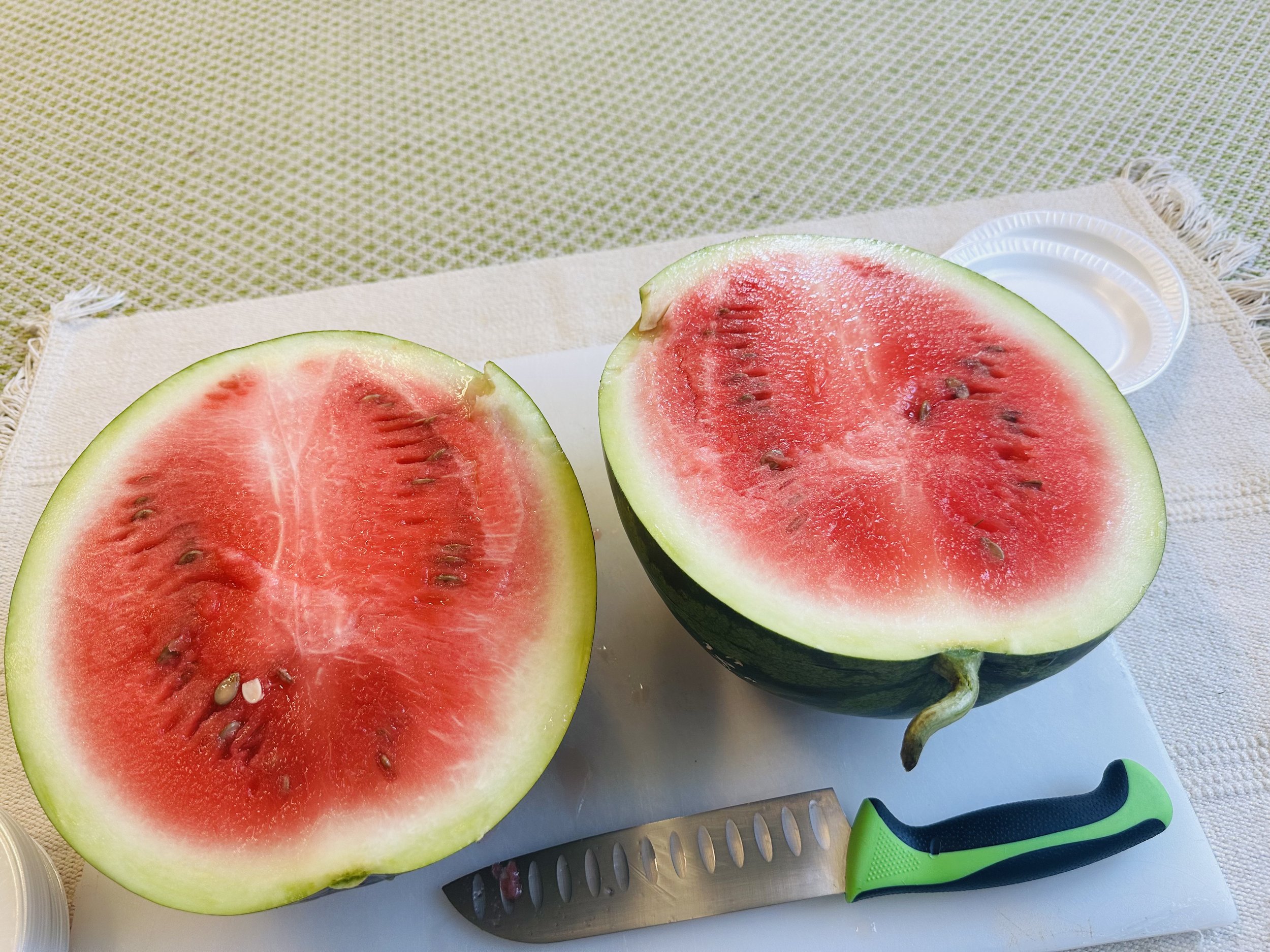Experiential Learning: Why 'Doing' Matters More Than 'Hearing' at Creative Gardens
A watermelon that we grew in our garden being cut open for the children to eat!
At Creative Gardens, our approach to education is deeply rooted in the philosophy that children learn best when they're active participants in the process. One might wonder, why do we place such emphasis on experiential learning? Why is 'doing' often prioritized over mere 'hearing' or 'seeing'? The answer is simple: experiential learning fosters deeper understanding, critical thinking, and lasting retention.
The Science Behind Experiential Learning
Numerous studies have shown that hands-on experiences can significantly boost cognitive growth and retention in children. When children are actively involved:
Engagement Skyrockets: Direct experiences demand a child's full attention. Engaging multiple senses, from touch to sight, ensures that a child's entire being is immersed in the learning process.
Real-World Application: Experiencing a concept firsthand means children can see its real-world application. For instance, rather than just reading about the life cycle of a butterfly, watching a caterpillar metamorphose into a butterfly makes the theory come alive.
Encourages Critical Thinking: Experiential learning often comes with unforeseen challenges. Overcoming these challenges requires problem-solving, adaptability, and critical thinking – skills that are invaluable throughout life.
Examples from Creative Gardens
At Creative Gardens, experiential learning isn't just a buzzword; it's a way of life. Here are a few ways we incorporate it:
Nature Walks: Instead of just discussing plants in a classroom, our children venture out, feel the textures of different leaves, smell flowers, and observe insects in their natural habitats.
Cooking Classes: Measuring ingredients isn't just about following a recipe. It’s a practical math lesson where children learn about quantities, fractions, and even the science of how different ingredients interact.
Art Projects: Beyond fostering creativity, art projects can be a lesson in history, culture, geometry, and even physics.
Why This Matters for Your Child's Future
In an era dominated by rapid technological advancements, the ability to think critically, adapt, and learn from direct experiences is more crucial than ever. Experiential learning prepares children for real-world challenges, making them not just great students, but lifelong learners.
Moreover, experiential learning cultivates a love for discovery. When children see the immediate outcomes of their actions, their intrinsic motivation to learn and explore grows exponentially.
In the grand tapestry of education, experiential learning stands out as a vibrant thread, adding depth, color, and context to the traditional learning model. At Creative Gardens, we believe that every child deserves an education that speaks to their innate curiosity and potential. Through experiential learning, we aim to kindle flames of discovery that will illuminate their paths for a lifetime.

